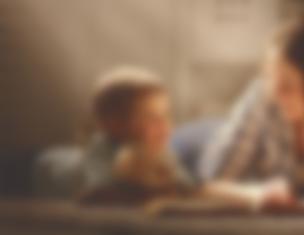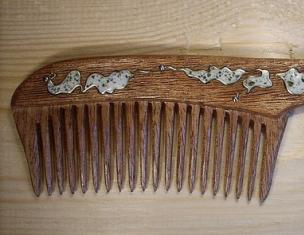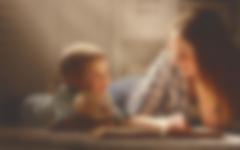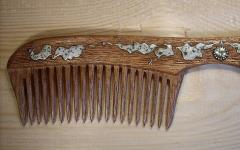To use presentation previews, create a Google account and log in to it: https://accounts.google.com
Slide captions:
K. D. Ushinsky is a great teacher and writer. K.D. Ushinsky about children Compiled by: Kochkaeva Larisa Anatolyevna teacher primary classes MKOU "OSH No. 2" p. Odesskoe
The bell rang and stopped. Everyone gathered us for class. They stood up straight, sat down quietly, and everyone looked at me. Don't yawn in class, but work and read. Organization of the beginning of the lesson
Game "Ladder" R _ _ R _ _ _ R _ _ _ _ R _ _ _ _ _ R _ _ _ _ _ _ horn, rock lynx, fish fisherman homeland joy
Game “Syllable Lotto” Make up as many words as possible with the syllables RA RO Rainbow, frame, mountain, rams, hole, drum; company, road, gate, feather, roses, bucket. Name the objects in the class whose names contain the sounds [t], [t ′] Table, chair, flower, picture, desk
K. D. Ushinsky devoted a lot of time to compiling books for reading and primary education: “Children’s World” and “Native Word”.
Books by K.D. Ushinsky for children
With the help of the Russians folk tales, proverbs, sayings, riddles, excerpts from the works of Russian writers K.D. Ushinsky introduced children into the great world of the Russian word. For many generations of Russian children, the joy of discovering the beauty and power of their native language was associated with the textbook “Native Word”.
p.95– Working with a story
Expressive reading by role Work in groups Prepare an expressive reading of the story by role. – What did they ask Grisha? – What did he answer? – What kind of help did you ask Grisha for? – What did he answer?
Physical exercise Quickly all the guys stood up, quickly raised their hands up, and quickly clapped 5 times. And now the blinking of the eyes: Quickly - quickly blinked And... they tapped their feet. They quickly leaned to the left and immediately straightened up! Right - left 10 times - The tired class rested. Like penguins they flew and sat quietly at their desks.
Brother says to sister: “Don’t touch my top!” The sister answers her brother: “Don’t touch my dolls!” The children sat in different corners, but soon they both became bored. K. D. Ushinsky Together it’s crowded, but apart it’s boring
What advice would you give to children? Why did the children sit in different corners? 2. Why did they get bored? 3. Read the title again. Try to explain how you understand it. 4. REMEMBER: these words have become a proverb, and you can also use it in your speech.
Work in pairs Retell the story in pairs
Four wishes
Morning rays
Creative work. Story Writing – Create your own stories based on real-life situations
Lesson summary What stories did you come across? Who is their author? What lesson did you learn from these stories?
Students are given an individual card, in Lesson I am in the lesson Result 1. interesting 1. worked 1. understood the material 2. bored 2. rested 2. learned more than I knew 3. indifferent 3. helped others 3. did not understand Reflection technique “Evaluate yourself in class"
Thanks for the work!
On the topic: methodological developments, presentations and notes
Presentation "Development of fine motor skills in children of primary school age during visual arts classes in an orphanage"
Development fine motor skills in visual arts classes helps to improve the development of school programs....
This presentation presents a model of psychological support for orphans and children without parental care. Acceptable in the work of social teachers and workers....
- Prepared
- primary school teacher
- Municipal educational institution "Rakityanskaya secondary school No. 1"
- Rakitnoye village, Belgorod region.
- Latysheva Tatyana Anatolyevna
- Konstantin Ushinsky became Russia's first children's writer. Before he started writing books, he for a long time worked as a teacher.
- The white arrow will help you introduce short stories Konstantin Dmitrievich Ushinsky. Clicking on the blue
- butterfly, you can go back.
- A crow flew over the lake; looks - the cancer is crawling: grab it! She sat down on a willow tree and thought about having a snack. The cancer sees that it has to disappear and says:
- - Hey, crow! crow! I knew your father and mother, what nice birds they were!
- - Yes! - says the crow without opening his mouth.
- - I knew your sisters and brothers - they were excellent birds!
- - Yes! - the crow says again.
- - Yes, even though the birds were good, they are still far from you.
- - Ara! - the crow shouted at the top of her lungs and dropped Cancer into the water.
- Crow and cancer
- Once upon a time there lived a cockerel and a hen. The cockerel ran into the garden and began pecking at the green currants, and the hen said to him: “Don’t eat it, Petya! Wait until the currants ripen." The cockerel did not listen, he pecked and pecked, and got so sick that he had to force his way home. The hen gave mint to the cockerel, applied mustard plaster - and it went away.
- The cockerel recovered and went into the field: he ran, jumped, sweated and ran to the stream to drink cold water; and the chicken shouts to him:
- - Don’t drink, Petya, wait until you get cold.
- The cockerel didn't listen and got drunk cold water- and then he began to have a fever. The chicken ran for the doctor, the doctor prescribed Petya some bitter medicine, and the cockerel lay in bed for a long time.
- The cockerel recovered and saw that the river was covered with ice; the cockerel wanted to go ice skating; and the chicken says to him: “Oh, wait, Petya! Let the river freeze completely; Now the ice is still very thin, you will drown.” The cockerel did not listen to his sister: the ice broke, and the cockerel fell into the water! Only the cockerel was seen.
- Know how to wait
- The trees argued: which one is better? Here the oak says: “I am the king of all trees!” My root is deep, the trunk is three times around, the top looks to the sky; My leaves are carved, and the branches seem to be cast from iron. I do not bow to storms, I do not bend before thunderstorms.
- The apple tree heard the oak boasting and said: “Don’t brag too much, oak tree, that you are big and fat: but only acorns grow on you, for the pigs’ amusement; and my rosy apple is even on the royal table.
- The pine tree listens, shakes its needle-like top. “Wait,” he says, “to boast; Winter will come, and you will both stand naked, and my green thorns will remain on me; Without me, people wouldn’t be able to live in the cold side; I use it to heat stoves and build huts.
- Tree dispute
- The bees see that the sun is shining brightly, that everything is light and warm, they got out of the hive and flew to the apple tree: - Do you, apple tree, have anything for the hungry bees? We starved all winter! “No,” the apple tree tells them. - You arrived too early, my flowers are still hidden in the buds, try the cherry tree.
- The bees flew to the cherry: - Dear cherry! Do you have a flower for the hungry bees? “Come see me tomorrow,” the cherry tree answers them. - Today I don’t have a single open flower on me yet, but when they open, I will be glad to see you. The bees flew to the tulip and looked into the motley head; but there was no smell of honey in it. The sad and hungry bees wanted to fly further, when they saw a modest blue flower under a bush - it was a violet. She opened her cup to the bees, full of aroma and fragrant juice. The bees ate, got drunk and flew home - merry.
- Bees on reconnaissance
- The red sun floated into the sky and began sending out its golden rays everywhere - waking up the earth.
- The first ray flew and hit the lark. The lark started, fluttered out of the nest, rose high, high and sang its silver song: “Oh, how good it is in the fresh morning air! How good! How fun!”
- The second beam hit the bunny. The bunny twitched his ears and jumped across the dewy meadow: he ran to get some juicy grass for breakfast.
- The third beam hit the chicken coop. The rooster flapped his wings and sang: “Ku-ka-re-ku!” The chickens flew off their roost, cackled, and began looking for worms.
- The fourth ray hit the hive. A bee crawled out of a wax cell, sat on the window, spread its wings and flew to collect honey from fragrant flowers.
- The fifth ray hit the little lazy boy in the nursery: it hurt him in the eyes, and he turned on the other side and fell asleep again.
- Morning rays
- The godmother fox has sharp teeth, a thin snout, ears on the top of her head, a tail that flies away, and a warm fur coat.
- The godfather is well dressed: the fur is fluffy and golden; there is a vest on the chest, and a white tie on the neck.
- The fox walks quietly, bends down to the ground as if bowing; wears his fluffy tail carefully, looks affectionately, smiles, shows his white teeth.
- Digs holes, clever, deep; there are many passages and exits, there are storage rooms, there are also bedrooms, the floors are lined with soft grass. Everyone would like the little fox to be a good housewife, but the robber fox is cunning: she loves chickens, she loves ducks, she will wring the neck of a fat goose, she will not have mercy on even a rabbit.
- Lisa Patrikeevna
- A cockerel walks around the yard: there is a red comb on its head and a red beard under its nose. Petya’s nose is a chisel, Petya’s tail is a wheel, there are patterns on his tail, and spurs on his legs. Petya rakes the pile with his paws and calls the hens and chicks together:
- - Crested chickens! Busy hostesses! Motley-pockmarked, black-white! Gather together with the chickens, with the little children: I have saved you some grain!
- The hens and chicks gathered and cackled; They didn’t share the grain, they got into a fight.
- Petya the cockerel does not like unrest - now he has reconciled his family: he ate one for his crest, that for his cowlick, he himself ate a grain, flew up onto the fence, flapped his wings, and shouted at the top of his lungs:
- “Ku-ka-re-ku!”
- Cockerel with family
- Kitty-cat - gray pubis. Vasya is affectionate and cunning; The paws are velvety, the claw is sharp.
- Vasyutka has sensitive ears, a long mustache, and a silk fur coat. The cat caresses, bends over, wags its tail, closes its eyes, sings a song, but if you come across a mouse - don’t be angry! The eyes are big, the paws are like steel, the teeth are crooked, the claws are protruding!
- Vaska
- The owner wanted to raise ducks. She bought duck eggs, put them under the chicken and is waiting for her ducklings to hatch. The hen sits on the eggs, sits patiently, comes down for a while to peck at the food and then returns to the nest.
- The hen has hatched her ducklings, is happy, clucks, leads them around the yard, tears up the ground - looking for food for them.
- One day a hen and her brood went outside the fence and reached a pond. The ducklings saw the water, they all ran to it, one after another they started swimming. The poor chicken runs along the shore, screams, calls the ducklings to her, - she is afraid that they will drown.
- And the ducklings are happy about the water, they swim, dive and don’t even think about going ashore. The housewife barely managed to get the chicken away from the water.
- Two stubborn goats met one day on a narrow log thrown across a stream. It was impossible to cross the stream at both times; one had to turn back, give way to the other and wait.
- “Make way for me,” said one.
- - Here's another! Look, what an important gentleman,” answered the other, “backing away, I was the first to ascend the bridge.”
- - No, brother, I am much older than you in years, and I have to give in to the milksucker! No way!
- Here both, without thinking for a long time, collided with strong foreheads, locked horns and, resting their thin legs on the deck, began to fight. But the deck was wet: both stubborn men slipped and flew straight into the water.
- The horse snores, curls its ears, moves its eyes, gnaws at the bit, bends its neck like a swan, and digs the ground with its hoof. The mane is wavy on the neck, the tail is a pipe at the back, bangs are between the ears, and a brush is on the legs; the wool shines silver. There is a bit in the mouth, a saddle on the back, golden stirrups, steel horseshoes. Sit down and let's go! To distant lands, to the thirtieth kingdom! The horse runs, the ground trembles, foam comes out of the mouth, steam comes out of the nostrils.
- One day, the Sun and the angry North Wind started a dispute about which of them was stronger. They argued for a long time and finally decided to measure their strength against the traveler, who at that time was riding on horseback along the road.
- “Look,” said the Wind, “how I’ll fly at him: I’ll tear off his cloak.”
- He said, and began to blow as hard as he could. But the more the Wind tried, the tighter the traveler wrapped himself in his cloak: he grumbled about the bad weather, but rode further and further. The wind became angry and showered the poor traveler with rain and snow. Cursing the Wind, the traveler put on his cloak and tied himself with a belt. At this point the Wind himself became convinced that he could not pull off his cloak.
- The sun, seeing the powerlessness of its rival, smiled, looked out from behind the clouds, warmed and dried the earth, and at the same time the half-frozen traveler. Feeling the warmth of the sun's rays, he perked up, blessed the Sun, took off his cloak, rolled it up and tied it to the saddle.
- “You see,” the meek Sun then said to the angry Wind, “you can do much more with affection and kindness than with anger.”
- Copyright presentation templates
- Butterfly
- Portrait of Ushinsky
- horse
- Two goats
- Chicken and ducklings
- Know how to wait
- Bees on reconnaissance
- Lisa Patrikeevna
- Morning rays
- Sun and wind
- Crow and cancer
- Tree dispute
- Vaska
- Cockerel with family
L. N. Tolstoy
K. D. Ushinsky
I. Ya. Yakovlev
STORIES FOR CHILDREN

L.N. Tolstoy
If they told me that what I write would be read by today’s children in twenty years and would cry and laugh at it, I would devote my whole life and all my strength to it.




K.D.Ushinsky
"Our Fatherland"
Fatherland
fathers
Motherland
mother - Russia



K. D. Ushinsky
Stories for children.



Books K.D. Ushinsky


K. D. Ushinsky in the memory of peoples
K. D. Ushinsky for his short life– 47 years old - has done a lot. He realized his youthful dream, written in his diary:
“To do as much good as possible for my fatherland is the only goal of my life, and I must direct all my abilities towards it.”

Wise thoughts from Ushinsky
"a necessary condition proper development human being is WORK"
“learning is work and
serious work"
“Hard work is the basis
human happiness"

K. D. Ushinsky in memory many nations
Many peoples have deep respect for the memory of the great Russian teacher. Row educational institutions named after Ushinsky, scholarships were established in his name.
For outstanding pedagogical works and services in the field of upbringing and education best teachers, scientists and public figures are awarded
USHINSKY MEDAL.


Outstanding figure of Chuvashia
Ivan Yakovlevich Yakovlev


K.D.Ushinsky
"Our Fatherland"
Fatherland
fathers
Motherland
mother - Russia



What is the uniqueness of personality?
AND I. Yakovleva?
This is a kind, honest, sincere, fair, generous, noble person. Cheerful spirit, with a developed sense of humor.
The main thing in Yakovlev is love, he is a loving nature, very reliable, faithful in love. Family man. Loving father. Devoted friend. Noble student. Loving, caring teacher. And all this is integrated into one great devoted love to the grave - for the native people.

MAIN DATES IN THE LIFE AND ACTIVITY OF Konstantin Dmitrievich Ushinsky 1824 - Born in Tula 1835 - 1840 - studying at the Novgorod-Severskaya Gymnasium - 1844 - studying at the Faculty of Law of Moscow University - 1849 - acting professor at the Yaroslavl Demidov Lyceum.

1855 - 1859 - inspector of classes at the Gatchina Orphan Institute - 1862 - inspector of classes at the Educational Society for Noble Maidens and the Alexander School (Smolny Institute). Simultaneously with his work at the institute, Ushinsky took over the editing of the Journal of the Ministry of Public Education.

1862 – 1867 – business trip abroad – Konstantin Dmitrievich Ushinsky died in Odessa. He was buried near the Vydubitsky Monastery, near Kyiv.

MAIN WORKS of Konstantin Dmitrievich Ushinsky 1857 - the first pedagogical article “On the benefits of pedagogical literature” - first edition “ Children's world" - first edition of "Native Word" (year 1 and 2) and "Book for Teachers" - 1869 - first edition of "Pedagogical Anthropology" - first edition of "Native Word" (year 3) and "Manual" to teaching on " Native word"(May) - last article " General view on the emergence of our public schools."


The central ideas of the pedagogical theory of K.D. Ushinsky “Education, created by the people themselves and based on popular principles, has that educational power that is not found in the best systems based on abstract ideas or borrowed from another people” 1. The idea of national education



Central ideas of the pedagogical theory of K.D. Ushinsky 4. Native language as a means of education “Language is the most living, most abundant and strong connection that connects the obsolete, living and future generations of the people into one great, historical living whole. It not only expresses the vitality of the people, but is precisely this very life.”

Central ideas of the pedagogical theory of K.D. Ushinsky 5. Women's education “If you look at a woman differently, see in her, first of all, a person equal in all respects with a man, then your views on women’s education will be different. We should not forget that a woman is a conductor of “the successes of science and civilization into the morals and life of society”



Medal K.D. Ushinsky In honor of K.D. Ushinsky and his merits in the development of domestic education, on May 25, 1946, a medal named after Ushinsky was established. Resolution of the Council of Ministers of the RSFSR for awarding “particularly distinguished teachers and figures in the field of pedagogical sciences.” The medal was presented by the Minister of Education of the RSFSR.

We, at the Voronezh State Vocational Pedagogical College, work with a graduate of the Voronezh State Pedagogical Institute, a wonderful specialist, a teacher with a capital letter - Tatyana Nikolaevna Ronshina, who was awarded in 2011 high reward in the world of pedagogy - the medal of K.D. Ushinsky! “Purpose in life is the core of human dignity and human happiness” K.D. Ushinsky


Slide 3
Brief biography
Konstantin Dmitrievich Ushinsky (1824-1870/71), founder of scientific pedagogy in Russia. In 1844 he graduated from the Faculty of Law of Moscow University, in 1846-49 he was a professor at the Yaroslavl Demidov Lyceum, in 1854-59 he was a teacher and class inspector at the Gatchina Orphan Institute, and in 1859-62 he was a class inspector at the Smolny Institute. The basis of his pedagogical system is the requirement for the democratization of public education and the idea of national education.
Slide 4
The main scientific works of K. D. Ushinsky on pedagogy
Pedagogical trip to Switzerland (1870) Man as a subject of education. Experience in pedagogical anthropology (1868-69)Books for initial classroom reading: Children's world (1861) Native word (1864)
Slide 5
Justifying his view on upbringing and education, K.D. Ushinsky proceeds from the following position: “If we want to educate a person in all respects, we must know him in the same way in all respects.” The goal of education, according to Ushinsky, is to raise a perfect person. This is a very capacious, complex definition, including: humanity, education, hard work, religiosity, patriotism.
Slide 6
Nationality and public school in the understanding of K.D. Ushinsky
“...education, created by the people themselves and based on popular principles, has that educational power that is not found in the best systems based on abstract ideas or borrowed from another people”
Slide 7
K. Ushinsky considered his native language to be the center of initial learning. Teaching children native language has three goals: Development of “innate mental ability, which is called the gift of speech”; Introducing children into conscious mastery of their native language; Their understanding of “the logic of this language, that is, the grammatical laws in their logical system.”
Slide 8
A look at pedagogy as a science and art
Developing the foundations of scientific pedagogy, K. D. Ushinsky creates a full-fledged, comprehensive theory of learning - didactics, in which he reveals all the main issues of learning based on the psychology of the child, logically strictly defining their essential characteristics. K.D. Ushinsky considers pedagogy as a science and pedagogical art in unity, as two sides of a single complex process of education. Ushinsky warns against contrasting practice and theory. He wrote that “pedagogical practice alone without theory is the same as witchcraft in medicine.”
Slide 9
Attention to the child’s personality in teaching and upbringing
Training K.D. Ushinsky considers it as a means of education and distinguishes two types of teaching: “...1) passive learning through teaching; 2) active learning through one’s own experience.”
Slide 10
The teacher-educator is the central figure of the educational process
Konstantin Dmitrievich assigns a large role to the personal conviction of the teacher: “A teacher can never be a blind follower of instructions: if not warmed by warmth, his personal convictions will have no force.”
Slide 11
“Seriousness should reign in school, allowing for a joke, but not turning the whole thing into a joke, affection without cloying, justice without pickiness, kindness without pedantry and, most importantly, constant reasonable activity.”
Slide 12
Conclusion
Pedagogical heritage of K.D. Ushinsky is a very important source of understanding the leading ideas of the theory and history of pedagogy, philosophy and history of education. By right K.D. Ushinsky today can be called the founder of the direction of pedagogical humanism in scientific pedagogy.
Slide 13
References
http://ru.wikipedia.org Man as a subject of education. Experience of educational anthropology. Volume I K.D. Ushinsky lib.nspu.ru/umkK.D. Ushinsky – THE FOUNDER OF SCIENTIFIC PEDAGOGY
View all slides









